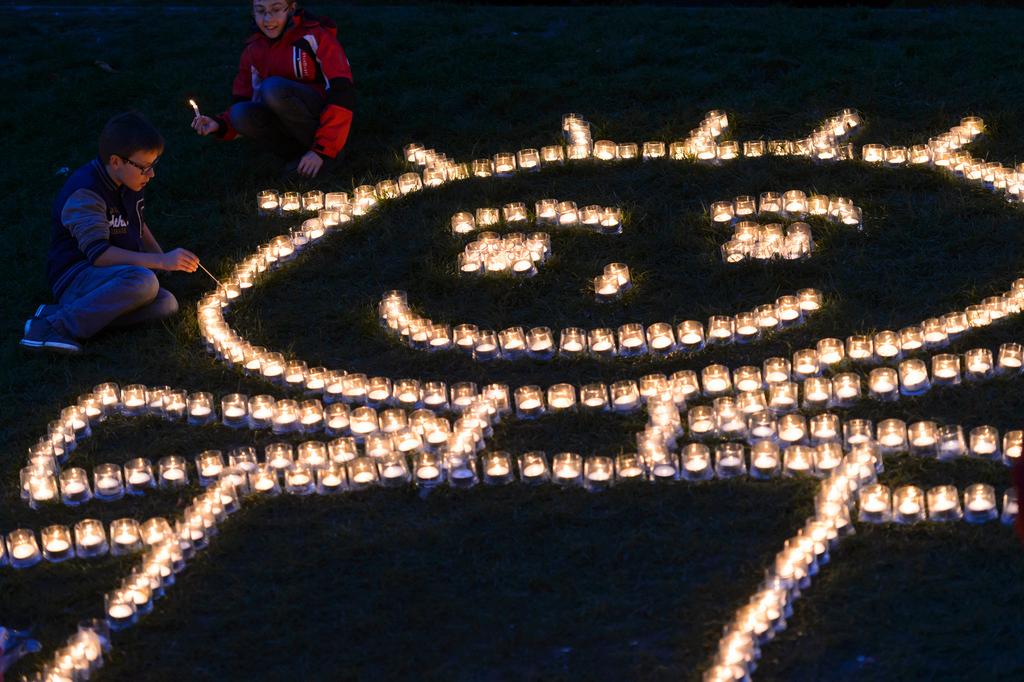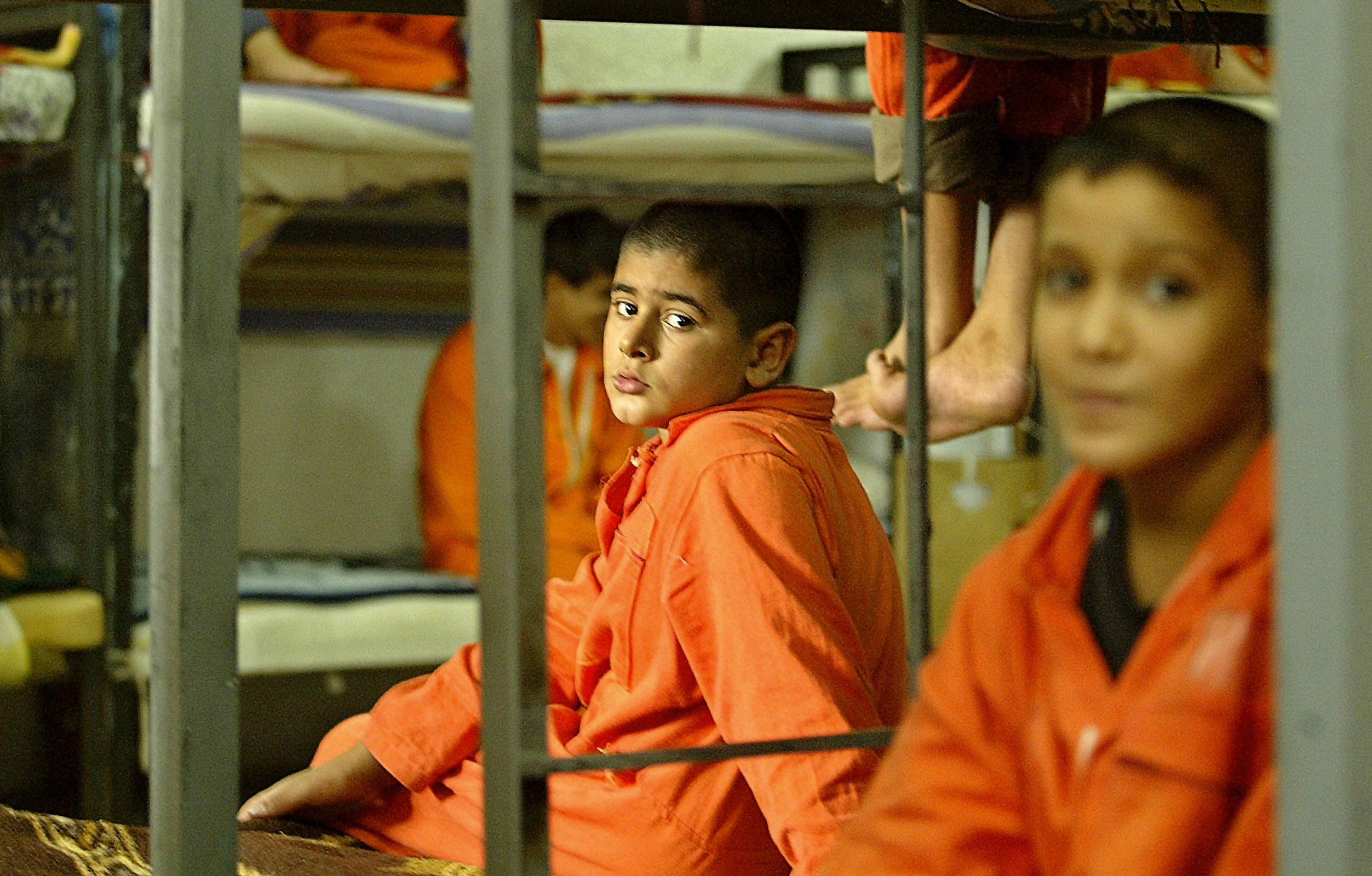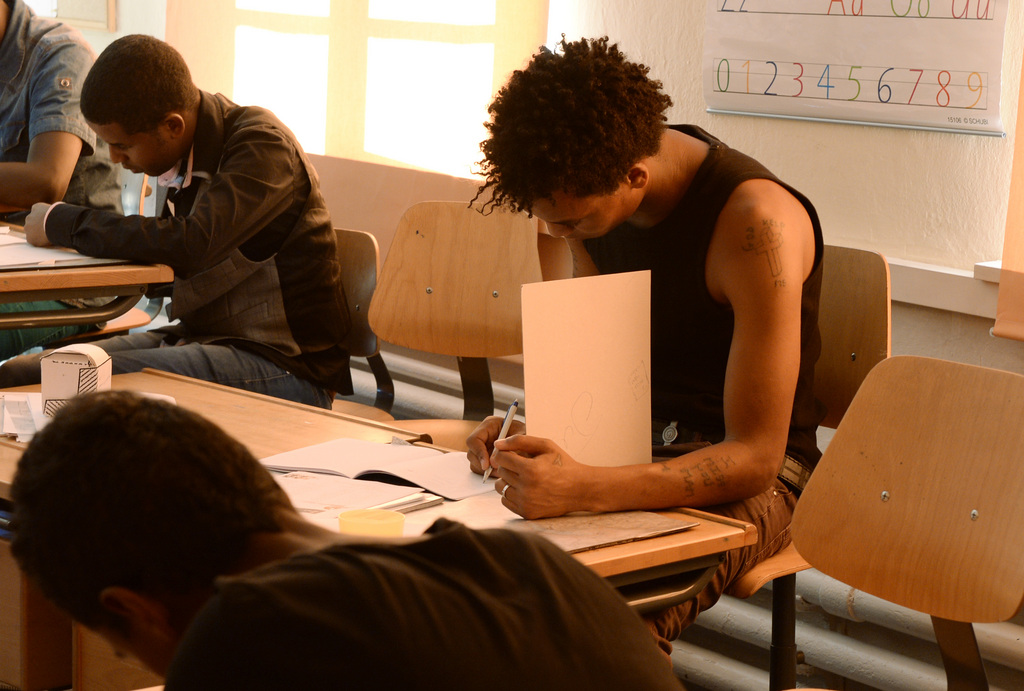UN criticises Switzerland over children’s rights

Switzerland ratified the United Nations Convention on the Rights of the Child almost 20 years ago, but UN experts say considerable progress is still needed to properly apply the international treaty.
“The situation of children in Switzerland is rather favourable, however we must recognise that there are a number of sensitive issues and shortcomings,” declared ambassador Stefan Cueni, head of the Swiss delegation, which this week defended its child rights record before a UN specialist committee in Geneva.
“Some children suffer from poverty, sexual abuse and violence, suicide, self-mutilation, addiction and food orders.”
Switzerland ratified the international child rights treaty in February 1997, which establishes global standards to ensure the protection, survival, and development of all children, without discrimination.
States are required to submit progress reports every five years and to undergo regular examinations of their record before a committee of independent experts. Switzerland submitted its first report in 2002. It filed its second, third and fourth reports five years late in June 2012.
On Wednesday, UN rapporteurs criticised this delay, adding that they regretted that Switzerland still had three specific reservations about the treaty. These include article 10, which guarantees family reunifications for all asylum seekers, article 40 ensuring the separation of prosecuting powers and the judiciary in penal cases involving minors, and article 37 that ensures the separation of children deprived of liberty from adults.
Cueni, the head of international affairs at the Federal Social Insurance Office, which coordinates children’s rights issues at the federal level, said it was not possible to withdraw the first two reservations. For the final point cantons had until the end of 2016 to conform and thereafter the reservation would be lifted.
Coordination
The UN specialists were also critical of coordination between the federal authorities and the 26 cantons and called for better harmonisation between the regions and the Swiss Centre of Expertise in Human Rights.
“Which authority was mandated with ensuring that Swiss legislation was in keeping with its international obligations, and was the convention ever invoked by tribunals?” asked UN rapporteur Bernard Gastaud.
In its report published in August 2014, the Swiss branch of the UN children’s organisation, Unicef, bemoaned the fact that none of the recommendations made to Switzerland in 2002 by the UN committee at the time had been implemented within the assigned deadlines.
“Coordination between the federal authorities and cantons which are the main bodies responsible for implementing children’s rights in the federal system are still not organised systematically,” it wrote.
Cueni admitted that Switzerland’s federal structure was sometimes not helpful: “Because of this system, it was sometimes hard to have an overview of efforts to uphold the rights of the child.”
Obesity to smacking
Numerous other child-related issues were raised during the sessions. Experts welcomed measures taken so far to address discrimination, but expressed concern about the protection of immigrant and asylum-seeking children, children with disabilities and ethnic minority children, particularly Roma.
They urged Switzerland to raise the age of criminal responsibility from the current age of ten, which they said was way below international standards.
Questions were also asked about corporal punishment, rising obesity rates, measures to promote breastfeeding, inclusion of children with autism and other disabilities in mainstream education, school absenteeism, access to schools by migrant children and the learning of languages.
UN expert Gehad Madi, asked why Switzerland had not adopted a national suicide prevention strategy. Suicide is the second most important cause of deaths among young people aged 15-19 in Switzerland after road accidents. One out of 20 young people had attempted suicide, he added.
Experts also wondered whether Switzerland might ratify the third optional protocol to the treaty, relating to a communications procedureExternal link for filing complaints. Cueni said consultations with the cantons and federal departments were ongoing.
Summing up, Gehad Madi thanked the Swiss delegation adding that the committee had “raised the bar” in its discussion with Switzerland because it was “a developed country with the resources and technical capabilities necessary to protect the rights of the child”.
A convention to protect children
The Convention on the Rights of the ChildExternal link is an international treaty adopted by the United Nations on November 20, 1989, establishing global standards to ensure the protection, survival, and development of all children, without discrimination.
Countries that ratify the treaty must submit reports every five years to a UN committee of independent experts—the Committee on the Rights of the ChildExternal link. The committee examines not only each country’s reports, but also information from non-governmental organisations and UN sources to identify areas of progress and concern and to recommend steps that the country should take to improve the lives of children.
The convention has three optional protocols that were negotiated by countries after the treaty was adopted and have the status of independent treaties. The optional protocol on the participation of children, adopted in 2000, deals primarily with child soldiers, and sets 18 as the minimum age for direct participation in hostilities, and for any conscription or forced recruitment into armed forces. The optional protocol on the sale of children, child pornography and child prostitutionExternal linkwas also adopted in 2000. The optional protocol on the communications procedureExternal link for filing complaints under the convention was adopted in 2011.

In compliance with the JTI standards
More: SWI swissinfo.ch certified by the Journalism Trust Initiative















You can find an overview of ongoing debates with our journalists here . Please join us!
If you want to start a conversation about a topic raised in this article or want to report factual errors, email us at english@swissinfo.ch.